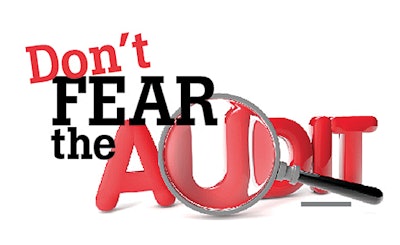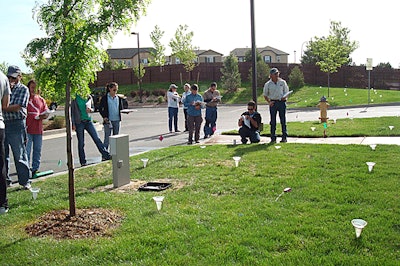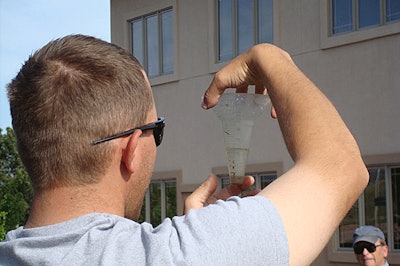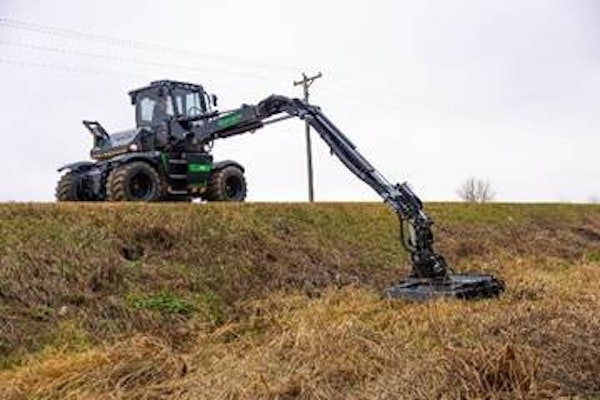
For many business owners, audits are about as popular as broadleaf weeds on a new lawn. But there’s one kind of audit that landscapers who install irrigation systems should embrace: irrigation audits, which can lower their customers’ water bills, promote sustainable water-management practices while developing “green” credibility and help their companies stand out among competitors.
“Would you spend $50,000 on a nice sports utility vehicle and then never get the oil changed or check on whether the alignment or tire pressure is correct?” asks Brent Mecham, industry development director for the Irrigation Association (IA). The IA is a group that represents irrigation equipment and system manufacturers, designers, contractors, end users and others.
“Irrigation audits are no different,” he adds. “Why invest $100,000 on landscaping and then assume the irrigation system will perform great for the rest of its life?”
Generally speaking, irrigation audits involve two steps. First, the auditor verifies the correct irrigation components have been installed and work properly. Second, the auditor uses catch-can tests to reveal two key metrics: water distribution uniformity and application rates.
“The former indicates how well the system functions, and the latter is essential to creating proper irrigation schedules…ensuring the system runs the correct amount of minutes and puts down the proper amounts of water,” Mecham says. The audit will also provide important information about the turf and landscape plantings that will impact the irrigation schedule.
Many auditors concentrate only on the catch-can, water-scheduling tests, but they don’t take time to observe the system’s overall operation. That’s because it takes time to turn on all of the sprinklers and watch how they function. As such, the visual-observation part of the audit gets short shrift — until someone notices that water usage is unusually high or sees brown areas on lawns, Mecham says.
“Frequently, people water at night, so no one sees the system operating,” he explains. “My observation is that brown spots indicate there’s something going on…what sprinklers are supposed to be hitting that spot, and why aren’t they? Maybe vandals or a lawn mower broke a sprinkler head, or it’s twisted, or the nozzle is plugged or even broken.”
How often should you perform audits? Part of the answer depends on whether the irrigation system is well maintained. But generally, Mecham suggests at least quarterly – but preferably monthly – visual inspections during the growing season.
Audit certifications gain traction
The IA offers an irrigation-audit certification program, although Mecham notes certification is not always required. Nonetheless, he anticipates demand for audit-certification training will increase in drought-stricken areas, as some municipalities and jurisdictions even require irrigation-system installations to pass an audit before they issue usage permits.
 Students attend the Irrigation Associations’ training class in Colorado Springs, Colorado.
Students attend the Irrigation Associations’ training class in Colorado Springs, Colorado.“These ‘green’ codes, which are becoming mandatory in many municipalities, are raising the bar (for water-efficiency standards),” he notes. “They’re changing the marketplace and exerting a big influence on landscaping and irrigation.”
The increasing use of smart controllers to run irrigation systems, driven partly by rebates offered by local water agencies, also is driving demand for irrigation audits. Too many irrigation contractors accept the default manufacturer settings during installation, rather than taking time to set site-specific parameters.
The typical result? Disappointed residential and commercial customers who complain that their water bills went up, despite the supposedly more efficient smart-controller technology, or that areas of their lawns are turning brown.
More reasons to audit
From a business standpoint, there are several other good reasons to offer irrigation audits, starting with differentiation from competitors.
As water resources become more scrutinized, audits are a way of assuring people you can do a better job of using water resources. Water audits are not an enormous source of revenue, but being a certified landscape irrigation auditor is a differentiator, and the marketplace demands it more and more.
 To read a catch can, landscapers should hold it at eye level and record the measurements in millimeters.
To read a catch can, landscapers should hold it at eye level and record the measurements in millimeters.Auditor certification adds to our irrigation managers’ credibility. When making proposals to customers, the audit certification can strengthen your recommendations and helps differentiate you from competitors.
Irrigation audits also can help customers save money through lower water usage. That may be a tougher selling point in areas where water is relatively cheap because it reduces the return on investment, Mecham notes.
“But if you look at the whole landscape holistically, using less water can also translate into reduced pesticide and fertilizer use and run-off, fewer mowings and less yard refuse removed from sites, not to mention reduced labor requirements,” he says. “Overwatering stresses plants and makes the site conditions more conducive to pests and diseases.”
Certification training allows auditors to better explain irrigation-system inefficiencies to customers.
Certification alone won’t help you generate more revenue directly, but you can generate revenue through selling irrigation upgrades. And with auditing certification, you can accurately estimate water savings and make (return-on-investment) calculations, as well as better explain irrigation issues to customers.
Above all, Mecham says it behooves landscapers to become more responsible stewards of a precious resource. Because landscaping requires water, which is an increasingly scarce resource in many regions, he believes the landscaping industry faces dramatic changes in the coming years.
“If less water is available, the industry must make better choices how we do things,” he says. “We need to get smarter as an industry about how to advise people to do things correctly.”
And that just may involve embracing the kind of audit a landscaper can love, not dread.
EDITOR’S NOTE: This article was written by Ken Wysocky.









